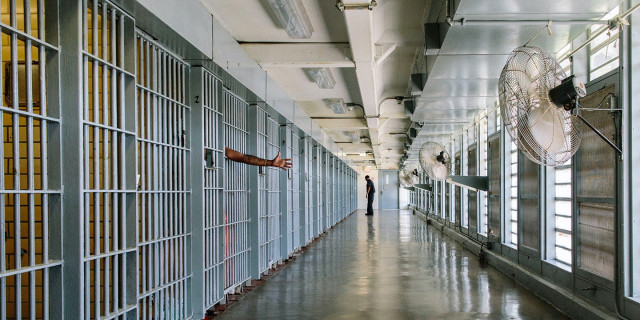ABUJA, Nigeria - The Centre for Gender Economics in Africa (CGE Africa) has urged stakeholders to enhance budget allocations and establish more facilities and crèches for female inmates in Nigeria.
The executive director of CGE Africa, Uchenna Idoko, made this request during the end-of-project dissemination workshop focused on evaluating government budgets for female inmates and their infants in correctional facilities.
The event, held on Monday in Abuja, saw Idoko stress that the report titled “Addressing the Needs of Female Inmates and Their Babies” underscored the urgent need for better welfare for female inmates.
Supported by the MacArthur Foundation, the event also pointed out the deficiencies in the Nigerian Correctional Services (NCoS) budget and its effects on the care provided to female inmates and their children.
Idoko explained that CGE Africa’s research, conducted in Lagos, Suleja, and Enugu, evaluated the government’s financial provisions for female inmates and their offspring.
He noted that the implementation of the Nigerian Correctional Service Act of 2019 necessitated intentional budget allocations to cater to the specific needs of female inmates.
“Female inmates constitute about two percent of the inmate population in Nigeria. Unfortunately, their needs are frequently overlooked due to the predominance of the 98 percent male population,” Idoko remarked.
He also advocated for gender-responsive budgeting (GRB) to address these disparities and ensure that the requirements of both genders are met. He argued that GRB serves as a strategic mechanism for fostering equity and addressing vulnerabilities, particularly for women in correctional facilities.
Idoko called on ministries, departments, agencies, and organizations to help alleviate the challenges faced by female inmates through effective budget execution. He urged the ministry of interior to incorporate gender-responsive budgeting in the upcoming budget cycle for the Nigerian correctional service.
Gender advisor to the acting controller-general of NCoS, Adenike Sheyindemi, highlighted the significance of reform, rehabilitation, and reintegration programs but noted that these initiatives are often compromised due to insufficient funding and the absence of gender-specific budgets.
Sheyindemi reported that as of January 13, the total female inmate population in Nigeria stood at 1,688, including 34 pregnant women and 51 infants under 18 months in custody. She emphasized the importance of Section 34 of the Nigerian Correctional Service Act of 2019, which requires the incorporation of gender-sensitive practices in all procedures, programs, and projects.
However, she pointed out that an analysis of the NCoS budget since 2018 has revealed considerable gaps in fully integrating gender considerations. The event, attended by stakeholders from the National Orientation Agency, the ministry of women affairs, and other organizations, also showcased a research report.
The report indicated that women in correctional facilities face challenges such as overcrowded cells, inadequate menstrual hygiene, and limited access to healthcare, especially for pregnant and nursing mothers. The findings underscored the urgent need to tackle these issues to enhance the conditions for female inmates.
The report identified significant deficiencies in funding and resources for female custodial centers, advocating for improved budgeting to ensure sustainable support for female inmates and their infants. It also recommended access to clean water, better sanitation, comprehensive healthcare, transportation for court appearances, sufficient nutrition, clothing for infants, and mental health support.




















